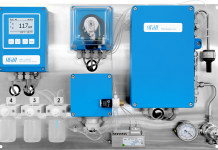The Tees Valley could be the birthplace of clean industrial growth, attracting inward investment and job creation, under finance proposals published by industrial cluster Teesside Collective.
The report, funded by the Department for Business, Energy and Industrial Strategy and commissioned from Pöyry Management Consulting, sets out the business case for an industrial carbon capture and storage (CCS) support mechanism that would grow the UK’s industrial base while substantially reducing carbon emissions.
Paul Booth, Chair of Tees Valley Local Enterprise Partnership and board member of Tees Valley Combined Authority, said: “There is no doubt the technologies involved in CCS are tried and tested and that Teesside has the concentration of facilities that make it the ideal place to start. The benefits in terms of long term industrial growth and emissions reduction are also clear.
“The question this report answers is whether there is a cost-effective way of making this a reality. The answer is a resounding yes. We know the demands on the public purse are great, but these are also lean industries with low margins. Working together, sharing the costs and risks opens up vast opportunity for all involved.”
Lord Oxburgh, who chaired the cross-party Parliamentary Advisory Group that published a report on CCS in 2016, said: “Applying CCS to industry represents some of the cheapest available carbon abatement in the UK economy. The Teesside Collective proposals offer a triple win – the greening of energy-intensive industry, meeting national carbon reduction targets and local industrial rejuvenation.”
The total cost for the proposed model, including access to a transportation and storage network, is £58/tCO2, making Industrial CCS a less expensive form of carbon abatement than offshore wind (£200/tCO2) and new nuclear power (£128/tCO2).











